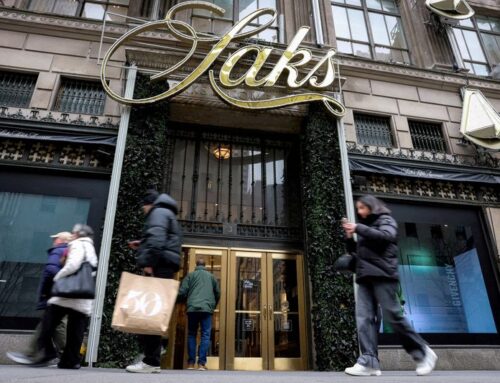Michigan’s struggling cannabis industry pushes lawmakers for urgent reforms
April 25, 2025
Michigan’s cannabis industry is facing a reckoning.
Amid oversaturation of supply, plummeting prices, and competition from black-market products, business owners and regulators are pressing lawmakers for significant reforms to prevent further economic fallout.
In just over four years since adult-use marijuana sales became legal in December 2019, the market has witnessed a dramatic collapse in the value of cannabis. The average cost of an ounce of flower dropped from $512 to under $65 today — a 77% decline. The freefall has driven many businesses to the brink, prompting fears of widespread consolidation, reduced product variety, and the erosion of opportunities for social equity licensees.
Brian Hanna, director of the Michigan Cannabis Regulatory Agency (CRA), painted a stark picture of the industry at a Senate Regulatory Affairs Committee hearing on Wednesday.
“Without some of these changes we’re talking about, you’re going to see consolidation,” Hanna said. “You’re going to see small businesses going out of business. You’re going to see bigger buying out smaller. You’re going to see lesser variety. You’re going to see social equity businesses suffer along with those businesses.”
To stem the crisis, three key solutions emerged from the hearing: imposing a moratorium on new cannabis grower licenses, cracking down on illicit market activity including unregulated hemp-derived THC products, and curbing excessive regulatory fines that burden struggling businesses.
Moratorium on new grow operations
Despite oversupply concerns, new cannabis grow licenses continue to be issued because the CRA is legally obligated to approve applicants who meet state and local requirements. In the first quarter of this year alone, 28 new grow licenses were approved, according to CRA records. Yet the total number of growers remains steady as market saturation forces existing businesses to close.
Robin Schneider, executive director of the Michigan Cannabis Industry Association, argued that the current rate of new licenses is unsustainable. She added that some licensed businesses are importing unregulated marijuana from other states and selling it in Michigan, where there’s already too much weed.
“Why are we continuing to dish out more licenses when we have not gotten the criminals out of our industry?” Schneider asked lawmakers. “It’s not fair.”
Alex Adams, CEO of Cambium Analytica, a cannabis testing lab, emphasized that allowing the market to stabilize by halting new licenses would naturally balance supply and demand.
“Natural attrition and contraction will occur if we put a moratorium in,” Adams explained. “It will balance out the amount of licenses. They will go down, but it will also remove the glut of product on the market and it should balance the prices out.”
Tackling unregulated hemp-derived THC products
Another major challenge is competition from hemp-derived THC products, which bypass stringent state regulations due to a loophole in the 2018 federal Farm Bill. While marijuana-derived THC products are strictly regulated and confined to licensed dispensaries, hemp-derived THC products are sold openly in gas stations, bars, and grocery stores, as well as online.
These products, often untested and potentially dangerous, pose significant safety risks. Adams described them as “chemically synthesized psychoactive compounds with no regulatory oversight,” often marketed in packaging designed to appeal to youth.
Schneider raised alarm about the lack of safeguards, saying, “These products are completely unregulated, often containing pesticides and chemical residue. They are often sold without age gating, with mislabeled potency on packaging.”
Hanna shared similar concerns, highlighting the unchecked production of new chemical variants.
“People are creating new chemicals that we have not seen before in human history,” Hanna said. “They are making things that weren’t intoxicating before, and now they are.”
He called on lawmakers to revisit a previously stalled bill that would require businesses selling hemp-derived products to obtain state licenses. Hanna characterized the proposal as a “reasonable response to a serious issue.”
Related
Reducing excessive regulatory fines
Another critical hurdle identified by business leaders was what they called the CRA’s heavy-handed approach to regulatory fines. Licensees reported significant financial stress due to steep fines for minor violations, sometimes even for self-reported infractions.
Attorney Douglas E. Mains, of Honigman’s Cannabis Industry Group, said licensees are frequently confused by ambiguous rules and inconsistencies from regulators, and have limited avenues to contest fines.
“I think most licensees are good actors, and they want to follow the rules, but they’re sometimes having trouble with the complexity of the rules,” Mains said.
Schneider reinforced this point, saying, “Our members have consistently raised the concern that their administrative fines have been too high for violations that are not illegal in nature or pose a threat to public health and safety.”
She suggested fines should aim to correct behavior rather than impose harsh financial burdens.
Hanna said that while the CRA issued 634 disciplinary actions last year, it conducted over 5,300 educational actions instead, demonstrating that the agency prefers guidance over punishment.
The stakes for Michigan
Despite its current struggles, Michigan’s cannabis market remains a significant economic force. With nearly 40,000 industry employees and more than $300 million generated in state tax revenue, the stakes are high.
Schneider recounted the story of a Michigan family who lost their life savings due to unfair competition from illicit actors bringing unregulated products into dispensaries.
“This was a family that was doing well and made a reasonable investment with a reasonable expectation that the product was going to be grown in the state of Michigan, not that people were going to bring in product and plummet our market and that they were going to lose their entire life savings,” Schneider said.
Hope amid challenges
Despite these struggles, Michigan’s cannabis industry has achieved remarkable milestones. In 2024, recreational cannabis sales surpassed $3 billion for the first time, totaling $3.27 billion — a 9.9% increase from the previous year. December 2024 alone saw $264.7 million in sales, pushing total adult-use cannabis sales since legalization past $10.2 billion.
Michigan ranks second nationally in marijuana sales per resident, trailing only Alaska, thanks partly to tourism, according to a recent study by LeafLink.
“People brag about Michigan,” Hanna said of the state’s market. “People should be proud that they’re making these products in Michigan.”
If you want us to sample your cannabis products, send us an email at [email protected].
Related
Search
RECENT PRESS RELEASES
Related Post



